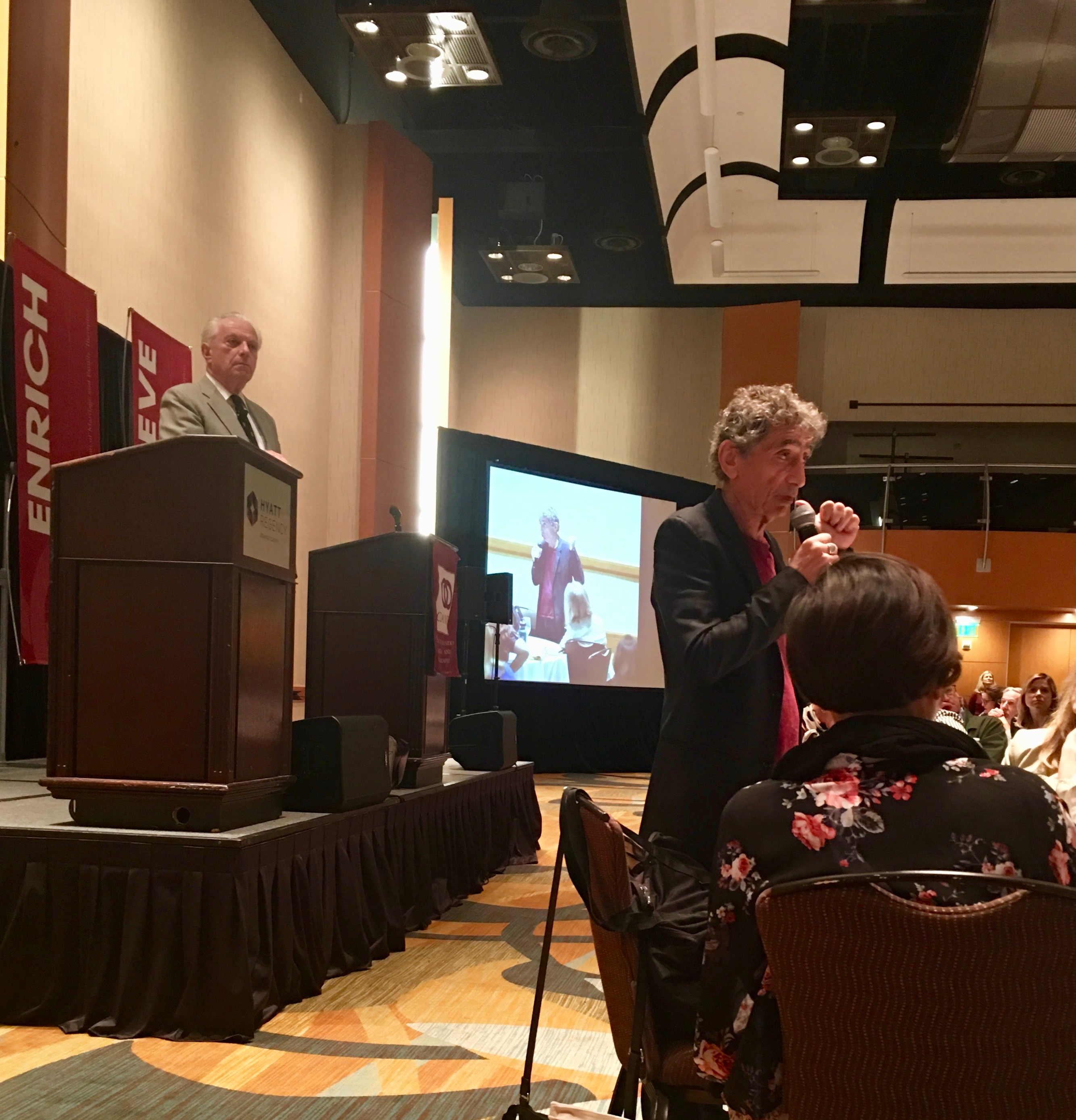
A couple of weeks ago I attended the California Association for Marriage and Family Therapy (CAMFT) Conference specifically to see Dr. Gabor Maté. This was my second time seeing him in person, although I have followed many of Maté’s interviews and podcasts in addition to reading his books. I find I continue to receive new insights into the human experience from each talk, particularly with childhood trauma and the ways in which trauma impacts us later in life. As a bonus, Dr. Vincent Felitti, who co-authored the groundbreaking Adverse Childhood Experiences Study, also presented for a portion of the day. The Adverse Childhood Experiences Study (ACES) found that childhood trauma impacts both our emotional/mental health as well as our physical health into adulthood. The following is a summary of the information I gathered during the workshop.
Buddhist philosophy posits that the mind creates our view of ourselves, others and the world. Dr. Maté agrees with the above statement but would add another truth: before our minds create our world, the world creates our minds. Early experiences, mostly orchestrated by the parent-child attachment relationship, create inner maps regarding love, safety and belonging. Some of these experiences leave us feeling secure or cared for and others have the opposite effect. This is where trauma comes in. Dr. Maté describes trauma as “what happens inside you” as opposed to “what happens to you.” We all experience adversity in our lives, some more intensely than others. Often “what happens inside you” is not only determined by the event we encounter but how we perceive that event based on previously held beliefs regarding love, safety and belonging.
Attachment relationships provide structure for how we survive both physically and emotionally. As mammals, humans connect to whomever is present when they come into the world. Hopefully that person is safe, reliable and attuned. Those traits will be internalized by the child and lead to healthy patterns and resiliency. Too often this is not the case and the child learns instead to sacrifice his or herself in order to survive. Maté contends we will choose attachment over authenticity. Consequently, the more we have lost ourselves to the powers of poor attachment models, the more vulnerable we are to the impact of future traumas.
Dr. Maté uses a treatment approach called Compassionate Inquiry to uncover hidden feelings and beliefs that stem from childhood experiences and attachment influences. This technique begins by simply using a current minor conflict in an individual’s life and tracking the feelings and thoughts down to how one ultimately sees oneself. He also suggests using Eye Movement Desensitization and Reprocessing (EMDR) Therapy, Somatic Experiencing, and other mind-body approaches (including psychedelics, if appropriate) to create insight and reconnect an individual to self and others.
Overall, I am encouraged to see Dr. Gabor Maté’s work spreading to mainstream psychotherapy. As more research supports the mind-body connection and the importance of relationships to emotional and physical health, it gives us a direction to follow for lasting healing.
